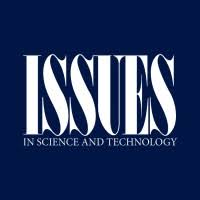
17th April 2020
Dietram A Scheufele,
Nicole M Krause,
Isabelle Freiling,
Dominique Brossard
In the midst of the COVID-19 “infodemic,” efforts to counter misinformation by narrowly focusing on “accuracy” and “the facts” are likely to backfire. Scientists, policy-makers, and journalists must equally attend to social values and scientific uncertainties.
COVID-19 has put science in a tricky spot. The good news, as National Academy of Sciences President Marcia McNutt explains, is that scientific expertise is back in high demand: “When the chips are down and everything is on the line and you can be the next person in the hospital bed, it’s the experts that you want to listen to.” But there’s a serious potential downside for science in having the public’s ear: today’s high-profile expert assertions can be disproven by tomorrow’s events. For example, if public health interventions such as social distancing are effective, COVID-19-related deaths in the United States could stay well below predictions offered by epidemiological models. Successful policy interventions might seemingly prove early expert estimates “wrong.”
This dilemma illustrates a much larger problem facing scientists, public health professionals, journalists, and science communication practitioners: a focus on accuracy and scientific facts is the wrong and even potentially misleading measure of good communication during this global pandemic.
Scientific communication guidelines, such as those adopted by the Centers for Disease Control and Prevention (CDC), have always placed great emphasis on the imperative for accuracyand the resulting need to fight misinformation.Following their lead during the COVID-19 crisis, public health professionals, media organizations, government agencies, and even former president Barack Obama warned against the dangers of misinformation. And in an open letter in April, over 160 journalists and journalism professors singled out Fox News for failing to fulfill its “duty to provide clear and accurate information about COVID-19.”
This focus on misinformation and accuracy is understandable. Accurate scientific information is key for meaningful public debate and decision-making. And correctives to misinformation provide instant gratification during an otherwise unpredictable and potentially long-term crisis that so far has not provided scientists and policy-makers with a lot of success stories. Organizations such as the US Federal Emergency Management Agency and the World Health Organization can quickly implement myth-busting and rumor-control websites with the reasonable hope of staving off a more widespread problem down the road.
However, as the COVID-19 “infodemic,” as WHO calls it, escalates, those communicating scientific information are at risk not only of oversimplifying the misinformation problem itself but also of failing to recognize and address other factors that complicate efforts to communicate effectively about COVID-19.


